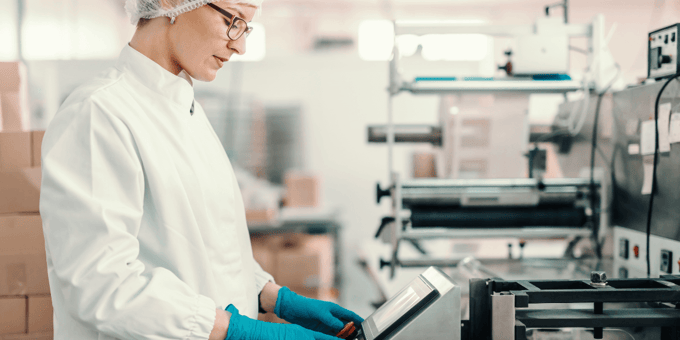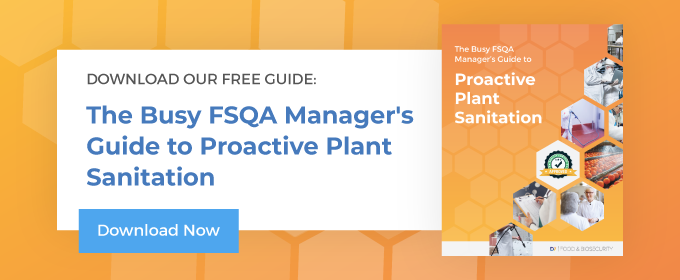 One of the biggest challenges for food processing companies is balancing the demands of production and sanitation. Although essential, food sanitation takes time and is disruptive to production schedules. The downtime required to go through the seven steps of sanitation can potentially cut into the bottom line. The longer it takes, the more significant the impact is.
One of the biggest challenges for food processing companies is balancing the demands of production and sanitation. Although essential, food sanitation takes time and is disruptive to production schedules. The downtime required to go through the seven steps of sanitation can potentially cut into the bottom line. The longer it takes, the more significant the impact is.
This is one reason why food processors run production lines for several days or a week between sanitation events. Although this might make financial sense, there are some downsides to consider.
The Risks of Long Production Runs
Long production runs keep equipment consistently running with the same product, but that doesn’t mean pathogens won’t be introduced into the environment. Longer runs come with higher risks because people, materials, and equipment continue to introduce pathogens to the environment. When left alone, bacteria will grow and thrive, sometimes at shocking rates. With multiple days between sanitation events, there is the potential for colonies to contaminate products and become a health risk. Some bacteria might also form biofilms, which are more difficult to remove than free-floating bacteria.
The presence of bacteria during a long production run can lead to much larger problems—such as product recalls—if the product becomes contaminated. It’s also important to note that because soils and pathogens have had longer to build up, thicken, and harden, end-of-run sanitation might require a more aggressive approach with stronger chemicals, higher water pressure, and other cleaning and sanitation methods.
The Benefits of Increasing Sanitation Frequency
Although you may not do a full deep clean or go through the seven steps of sanitation every day, there are some benefits to sanitizing during long production runs.
Comply with regulatory guidance.
Although daily sanitation is not required, it is highly recommended. The requirement is for facilities to sanitize surfaces and equipment “as frequently as necessary.” If you choose not to perform daily sanitation to increase run times, you must include your justification in your Hazard Analysis Critical Control Point (HACCP) plan. Incorporating daily sanitation into your long production runs will bypass this need for justification.
Reduce build-up of pathogens.
Frequent sanitation reduces the risk of pathogen build-up and biofilm formation. Although it takes time and resources, this proactive approach can save money in the long term by avoiding biofilm removal. Not allowing pathogens to build up also decreases the chances of food contamination and costly recalls.
Get fewer positives with environmental swabs.
Periodically swabbing can determine whether pathogens are on a surface and trigger a sanitation event when unsanitary conditions develop. When you sanitize during long production runs, you can get fewer positive results and keep the lines running longer.
Why D7 Is a Good Fit
One of the unique features of D7 sanitizer is that the formulation can clean and sanitize at the same time. Many other sanitizers require a cleaning step to remove soils so the sanitizer can be fully effective. This adds steps that may not be possible in the midst of a production run.
However, with D7, you can apply the pre-mixed product, allow it to sit for the minimum recommended contact time, then rinse with potable water. Doing this between shift changes during a long production run can prevent the build-up of pathogens and reduce the risk of bacterial contamination.
D7’s clinging foam makes it easy to clean both horizontal and vertical surfaces so you can easily see which areas have been treated. With no scrubbing required, food contact surfaces, floors, walls, forklifts, and hard nonporous surfaces can quickly be sanitized between end-of-run sanitation events.
Decon7 provides more than products. We also offer demonstrations so you can see the products in action, consulting to help you determine the best approach, and training to ensure your whole team understands how to use the products and equipment. For more information about efficient sanitizing, read The Busy FSQA Manager’s Guide to Proactive Plant Sanitation.


